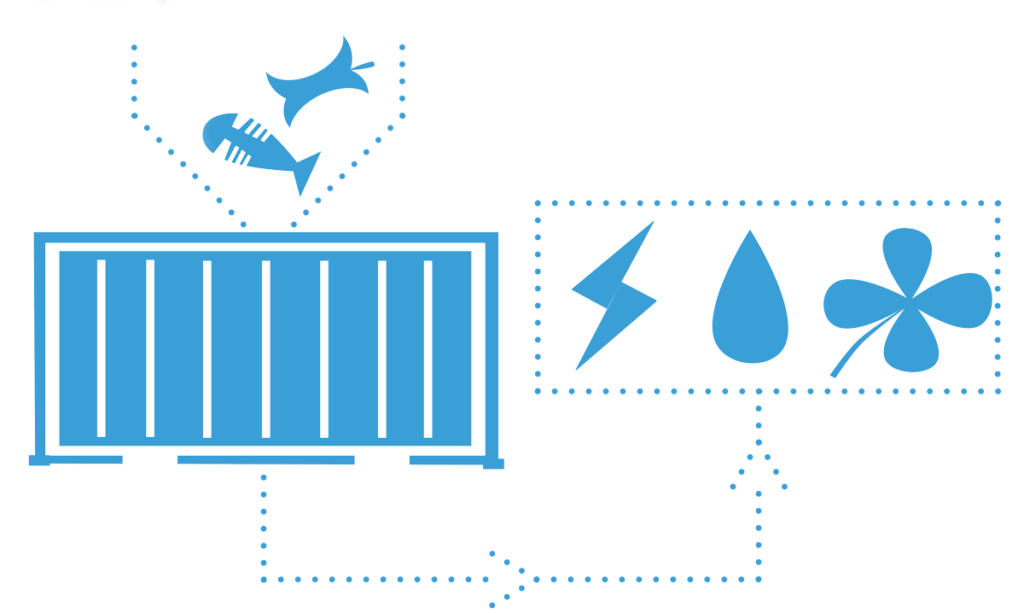The International Day of Zero Waste today on March 30, 2023, is an opportunity to raise awareness about the devastating effects of food waste and to take action to address this urgent problem. Food waste is a massive global issue that has far-reaching consequences for our planet, our economy, and our societies. It’s estimated that globally, one-third of all food produced is wasted, which amounts to 1.3 billion tons per year.
The impact of food waste is significant and cannot be ignored. When food is wasted, it ends up in landfills, where it produces methane gas, a greenhouse gas that is 28 times more potent than carbon dioxide. This contributes to global warming, which has severe consequences for our planet, including more frequent and intense weather events, rising sea levels, and the loss of biodiversity. Additionally, the resources used to produce the wasted food, including water, land, and energy, are wasted as well.
Why should we care about food waste within our business?
Landfilling one kilogram of food waste produces as much CO2 as landfilling 25,000 half-liter plastic bottles. Food waste in landfills generates methane gas, 28 times more potent than CO2 in contributing to global warming. One of the most impactful ways to reduce greenhouse gas emissions and combat climate change it is crucial to decrease food waste ending up in landfills and incineration plants, but rather reduce it and create renewable energy in an anaerobic digester.
Create a less hot climate
But we don’t have to accept this reality. The International Day of Zero Waste is an opportunity to take action and create a more sustainable future. As individuals, we can make a difference by reducing our own food waste. This can be done by planning meals, buying only what we need, using up leftovers and separate all food waste in a green bin for separate collection. But it’s also important to recognize that businesses and organizations play a significant role in reducing and separating food waste.
For companies that produce food waste, from staff members, guests or from the production streams, there are innovative solutions available to transform it into something useful, such as renewable energy and natural fertilizer. The Waste Transformers developed a technology that turns food waste into renewable energy and organic fertilizer at the site where the food waste is produced. Ideal for urban environments. This containerized modular biodigester is being used by companies around the world to reduce their environmental impact and create a more sustainable future. Ideal for sites that produce over 300kgs of food waste per day. Read here how hotel owners can implement actions to reduce their environmental impact and reduce costs.
Real positive impact on the environment and waste management costs 
Implementing solutions like the Waste Transformer can have a significant impact on the environment and the economy. By reducing food waste and turning it into renewable energy, we can reduce greenhouse gas emissions, reduce our reliance on non-renewable energy sources, and create a more circular economy within organisations, such as hotels and resorts, large sport event facilities such as stadiums and in communities. Additionally, the organic fertilizer produced in a Waste Transformer can be used to enrich soil and promote sustainable agriculture practices replacing fossil generated chemical fertilizers.
Another much-needed call to action:
The International Day of Zero Waste is a call to action for individuals and companies alike. Let’s use this day to raise awareness about the impact of food waste and inspire others to take action. For companies that produce food waste, let’s work together to implement solutions like the Waste Transformer to reduce our environmental impact and create a more sustainable future.
Promoting zero-waste initiatives through this international day can help advance all the goals and targets in the 2030 Agenda for Sustainable Development, including Sustainable Development Goal 11 and Sustainable Development Goal 12. These goals address all forms of waste, including food loss and waste, natural resource extraction and electronic waste.
Together, we can make a difference and create a world where zero food waste is the norm.
Find more information about activities on this day here.
Do you want to follow us on social media? Give us a page like on Facebook, Twitter, LinkedIn and Instagram.
Curious how our installation works? Watch our short movie here.
Become a frontrunner in your industry

Hotels

Airports

Universities

Communities

More industries
Get in contact with us to learn more about the possibilities of using an installation on your site to generate value from waste.
> Return to other news

